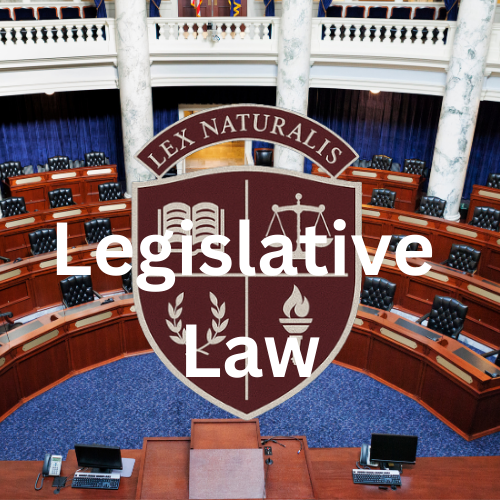The Policy Jurist: Architect of Law, Guardian of Liberty Part 1
- Dr. Byron Gillory
- Aug 18
- 3 min read

Introduction: A New Figure in Jurisprudence
In every age, law evolves not merely through adjudication in courts or through the passage of statutes, but also through the intellectual craft of those who define, design, and defend its very foundations. Historically, lawyers have been courtroom advocates, judges have been arbiters, and legislators have been political authors of statutes. Yet none of these roles adequately captures the emerging discipline of the Policy Jurist—a professional who occupies the space between constitutional philosophy, statutory architecture, and public governance.
Unlike the attorney, who argues within a framework already established, or the legislator, who often operates under partisan impulse, the Policy Jurist embodies a vocation dedicated to designing law with fidelity to principle, precision of language, and foresight of policy consequence. To understand this new role, one must first distinguish the practice of policy jurisprudence from both litigation and legislation.
This essay explores the Policy Jurist in depth—its intellectual genealogy, professional identity, methodological commitments, and institutional importance. What follows is not merely an introduction but a manifesto: a case for why our age demands the rise of the Policy Jurist as a distinct profession.
Part I: Origins and Necessity
1. The Crisis of Modern Legal Practice
Law in the modern West has increasingly fractured. Legislatures churn out statutes at breakneck speed, often riddled with contradictions, loopholes, and vague delegations. Courts interpret these texts with methodologies that oscillate between textualism, purposivism, and living constitutionalism. Bureaucracies fill the gaps with thousands of pages of regulation. In this fragmented order, law risks losing its coherence and legitimacy.
Traditional jurists—judges and lawyers—are ill-equipped to repair this fragmentation. Judges can interpret but not redesign; lawyers can argue but not architect. Legislators can write statutes, but they lack the philosophical rigor and technical training to ensure harmony between law and liberty.
Enter the Policy Jurist: a scholar-practitioner whose sole vocation is to design law as a coherent, principled system rooted in constitutional order.
2. Intellectual Lineage
The Policy Jurist does not emerge ex nihilo. The lineage stretches back to the Roman jurisconsults, those who advised magistrates on principles of jus civile and jus gentium. In medieval Christendom, canon lawyers served as architects of ecclesiastical order. Enlightenment thinkers such as Montesquieu and Blackstone provided systematic treatments of law as an expression of natural order. Yet in modernity, jurisprudence splintered: legal positivism reduced law to command; policy studies divorced governance from principle; constitutional theory retreated into academia.
The Policy Jurist seeks to reunite what was divided: philosophy, policy, and positive law, integrated into a professional discipline.
Defining the Policy Jurist
1. The Ethos
The Policy Jurist is animated by three commitments:
Constitutional Fidelity: Law must align with the higher order of constitutional governance, ensuring limited power and secured liberty.
Policy Rationality: Law must be designed with foresight of consequences, informed by economics, history, and social realities.
Linguistic Precision: Statutes must be drafted with clarity, coherence, and durability, resisting both judicial distortion and bureaucratic drift.
These are not ancillary virtues but core to the identity of the Policy Jurist.
2. Distinction from Other Legal Roles
Not a legislator: Legislators operate by coalition and compromise. The Policy Jurist supplies the intellectual blueprint beyond partisan bargaining.
Not an attorney: Attorneys argue within the frame; the Policy Jurist builds the frame itself.
Not a judge: Judges interpret; the Policy Jurist architects.
Not a policy analyst: Analysts generate reports; the Policy Jurist generates law.
3. Professional Identity
The Policy Jurist is best understood as a hybrid of jurisprudence, legislation, and policy design. This is why the term jurist is retained: it connotes the ancient vocation of those who define and systematize the principles of law, not merely argue cases.

Comments